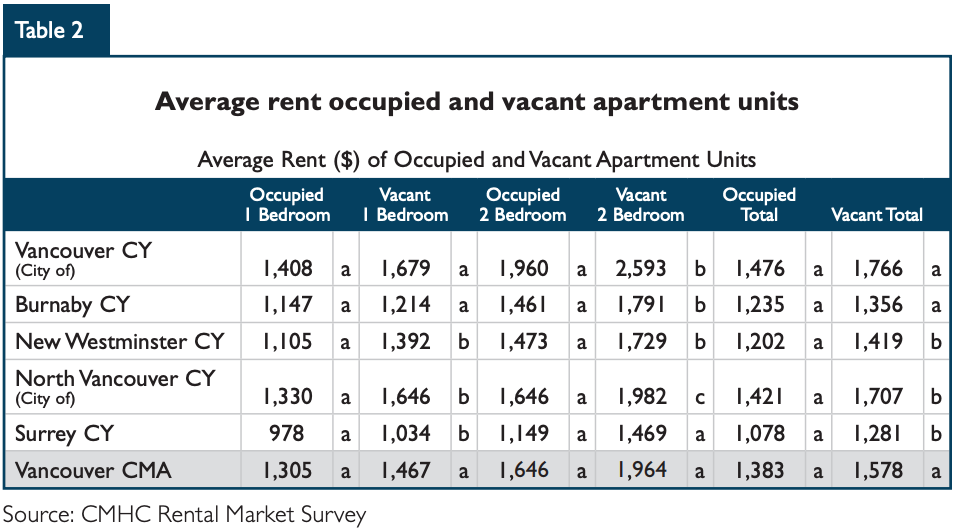2018 was a memorable year for Vancouver’s rental housing market. Government initiatives to restrict short-term rentals and reduce the number of vacant homes led to a slight uptick in privately owned rental properties available, while the approval of several purpose-built rental developments helped to alleviate some concerns surrounding the scarcity of affordable housing in the city.
While it is still too early to tell what the long-term impact of these initiatives will be, the consensus among real estate analysts is that the recent increase in available rental properties has led to a moderate stabilization of average rental rates.
Vancouver’s Rental Housing Inventory
According to the CMHC 2018 Rental Market Report, approximately one third of Vancouver’s total rental housing inventory consists of privately rented condos, while secondary suites, including basement suites and laneway properties, made up roughly half of the city’s secondary rental stock.
Despite the recent influx of purpose-built rental units within the city, evidence continues to support the conclusion that Vancouver’s existing rental apartment stock may not meet the needs of all Vancouver households, particularly those with children and multi-generational residents.
Demand for Rental Housing is Increasing
According to the CMHC’s report, demand for rental units in the Vancouver central metropolitan area (CMA) remained strong throughout 2018, bolstered by a growing preference for rental housing and sustained by healthy in-migration from international and interprovincial territories.
Population growth has been a driving force behind increasing rental demand, particularly within the 20-34 and 65+ age demographics, which represent the majority of individuals who report a preference for rental housing over home-ownership.
There is a significant amount of evidence indicating that demand for rental properties in Vancouver will continue to outstrip supply in the coming year. However, an increase in construction starts for purpose-built developments, coupled with the rising number of privately owned rental units available on the market, leads some analysts to believe that housing relief –at least for some demographics– is on the near horizon.
Elevated home prices and first time buyer challenges surrounding provincial mortgage stress testing have also contributed to an overall increase in consumers’ preference for renting over buying real estate.
Rental Rates Appear to be Stabilizing
Over the last several years, Vancouver’s rental rates have undergone a staggeringly steep upward climb. The rise of the city’s average cost of living has led some analysts to believe that a “housing bubble burst” is imminent, while others maintain that the cost of Vancouver’s real estate will only increase over time.
According to real estate analyst Louie Dihn, who studies market trends for Vancouver’s rental sector, the increased volume of available units may have caused a slight decline in average asking rates. Rental listing volume showed a 4.3% year-over-year (y-o-y) increase in November 2018, and median rents for all unit-types exhibited a decline during that time, with the exception of furnished two-bedroom units.
Average market rental rates for Vancouver CMA for November 2018:
- 1 bedrooms $1925 (-1.3%)
- 2 bedrooms $2650 (-0.0%)
- 3 bedrooms $3080 (-3.8%)
Source: Quantitative Rhetoric, November 2018
The CMHC 2018 report found that average rental rates for occupied units were considerably lower than vacant units, which suggests that long-term tenants may be less inclined to move, keeping the overall monthly turnover rate low.
As we look into the new year, we can expect to see a continuation of the trends from 2018. The high cost of entry-level homeownership, coupled with increasing interprovincial and international in-migration, will likely continue to compress vacancy rates in the city. New rental inventory, in the form of secondary basement suites, former short-term rental units and subdivided properties, may offer some relief for Vancouver renters.




